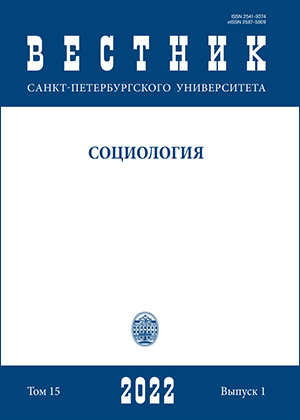Work in conditions of remote and hybrid models: The example of IT-companies’ employees
DOI:
https://doi.org/10.21638/spbu12.2022.101Abstract
The paper analyzes work practices and attitudes of employees of Russian IT-sector companies towards working in remote and hybrid formats (combining working from home and from the office). We focus on two main sets of issues. First, we consider workloads and socio-psychological well-being of employees under remote and hybrid employment conditions. Second, we focus on individual and group efficiency of hybrid and remote work formats. The main contribution of this paper to the existing literature is in its focus on organizational and managerial factors which shape employee attitudes to remote working. Drawing on a survey study of 400 employees in Russian IT-sector in March 2021, we find that hybrid format significantly increases the workload of employees compared to remote working. Nevertheless, paradoxically, the hybrid format is preferred by the majority of respondents. We conclude that the attitudes to remote work are shaped mainly by the character of work tasks and the employee’s position in the network of organizational communications. We find evidence that respondents without subordinates, who are responsible for their individual work tasks, tend to react positively to remote work, emphasizing the “convenience” of working from home, whereas managers and employees who are actively involved in communication processes and organization of other people’s work, are much more critical to remote working. Our findings also suggest that the quality of organizational communications plays a key role in determining both employees’ social well-being and performance assessment. In remote working, information overloads become a serious problem for workers, while the lack of information, by contrast, is not considered to be a serious problem.
Keywords:
remote work, hybrid work format, IT-companies, intra-organizational communications, workload, work efficiency, work-life conflict, burnout
Downloads
References
Downloads
Published
How to Cite
Issue
Section
License
Articles of "Vestnik of Saint Petersburg University. Sociology" are open access distributed under the terms of the License Agreement with Saint Petersburg State University, which permits to the authors unrestricted distribution and self-archiving free of charge.




